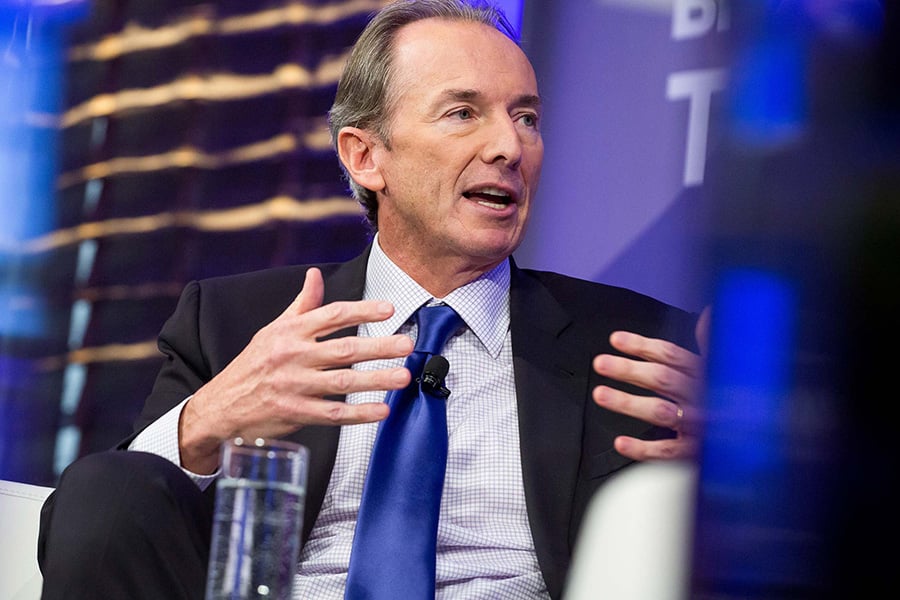

Morgan Stanley increased James Gorman’s compensation 17% for his final year as chief executive, boosting his pay to $37 million.
Three-fourths of Gorman’s bonus will be paid in deferred stock over three years, the firm said in a regulatory filing Friday. On top of his $1.5 million base salary, he received a cash bonus of just under $9 million.
During his time as CEO and in 2023, Gorman “reshaped the firm into a stronger and more balanced institution positioned for long-term growth,” the bank said in the filing. “In addition, Mr. Gorman successfully accomplished an orderly, multiyear CEO succession-planning process.”
Gorman, 65, was succeeded as CEO earlier this month by Ted Pick. During his 14 years running the firm, Gorman engineered a transformation of Morgan Stanley with wealth management at its core following the firm’s near collapse during the 2008 financial crisis. Gorman is now the bank’s executive chairman.
In a rarity for Wall Street, the two executives who missed out on the CEO job agreed to remain at Morgan Stanley, with co-president Andy Saperstein gaining oversight of asset management in addition to his role leading wealth management, and Dan Simkowitz replacing Pick as co-president leading the investment banking and trading division. In October, Morgan Stanley granted special bonuses worth $20 million each to Pick and his two deputies.
In Friday’s filing, Morgan Stanley said its board’s compensation committee approved, retroactive to Jan. 1, a new base salary of $1.5 million for Pick — a move made to bring his pay in line with Gorman’s base salary when he was CEO. Pick previously received a base salary of $1 million a year.
Gorman’s 2023 pay bump follows a cut the previous year. His compensation was reduced by 10% for 2022, a year in which profit tumbled at Morgan Stanley and its shares sank more than 13%. Last year, the stock rose 9.7% even as net income slumped 18% to $9.09 billion. Revenue, however, rose slightly to $54.1 billion.
The pay increase for Gorman comes after a bump for the head of JPMorgan Chase & Co. On Thursday, the largest US bank announced that it raised CEO Jamie Dimon’s pay 4.3% to $36 million for 2023, a year in which his company notched the highest profit in the history of US banking.

While industry statistics pointing to a succession crisis can cause alarm, advisor-owners should be free to consider a middle path between staying solo and catching the surging wave of M&A.

New joint research by T. Rowe Price, MIT, and Stanford University finds more diverse asset allocations among older participants.

With its asset pipeline bursting past $13 billion, Farther is looking to build more momentum with three new managing directors.

A Department of Labor proposal to scrap a regulatory provision under ERISA could create uncertainty for fiduciaries, the trade association argues.

"We continue to feel confident about our ability to capture 90%," LPL CEO Rich Steinmeier told analysts during the firm's 2nd quarter earnings call.
Orion's Tom Wilson on delivering coordinated, high-touch service in a world where returns alone no longer set you apart.
Barely a decade old, registered index-linked annuities have quickly surged in popularity, thanks to their unique blend of protection and growth potential—an appealing option for investors looking to chart a steadier course through today's choppy market waters, says Myles Lambert, Brighthouse Financial.
